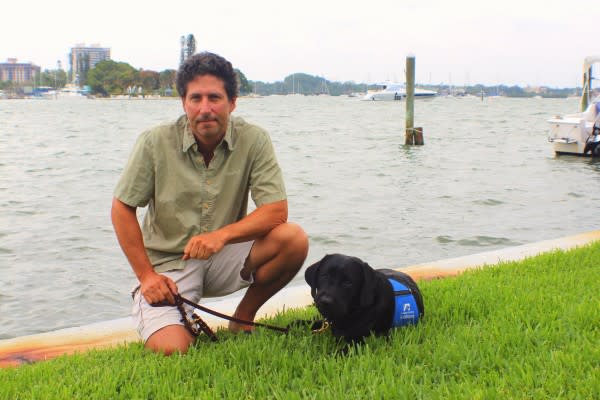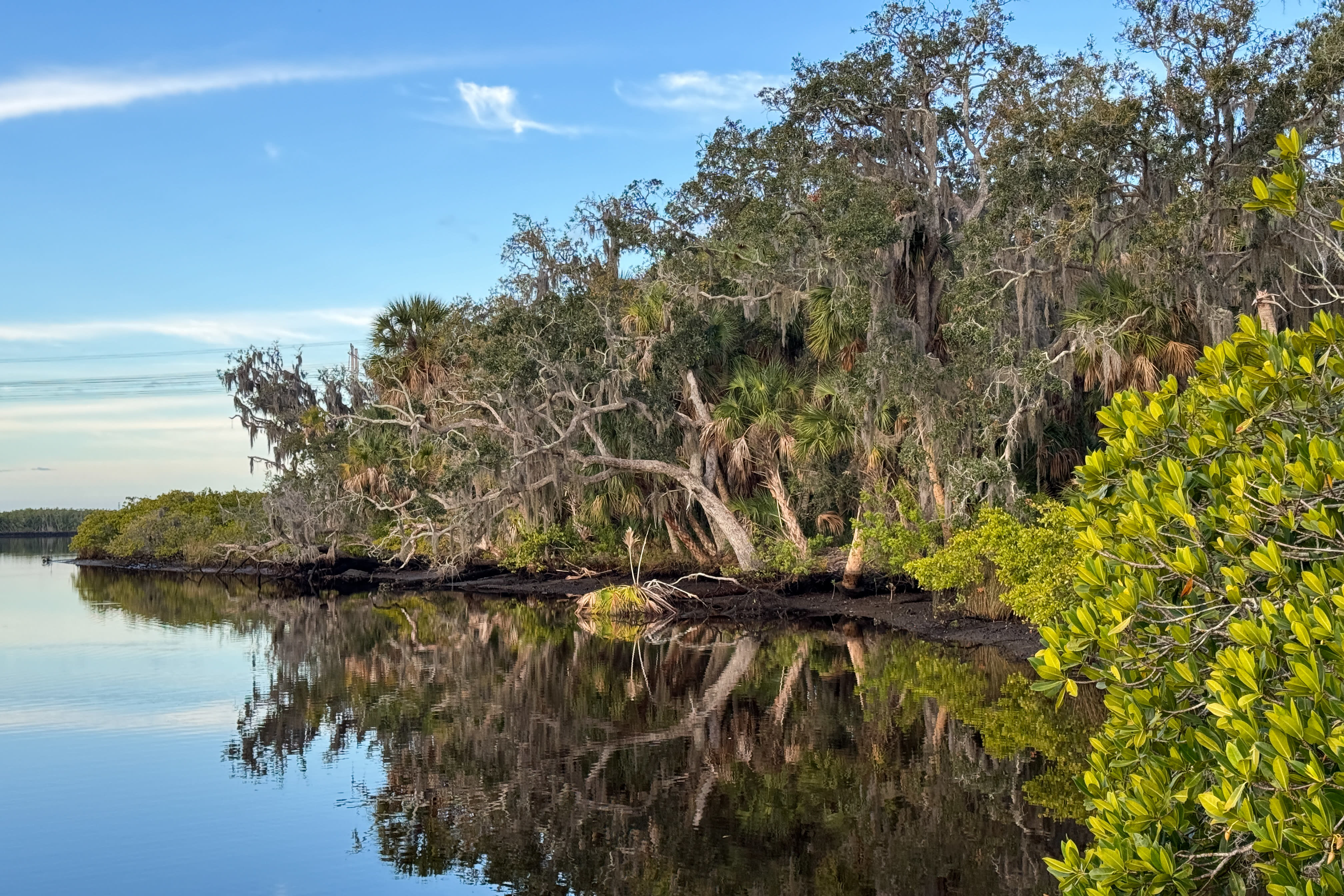Suncoast Waterkeeper Executive Director Justin Bloom on Our Region's Water Problems

Doubt how important water resources can be to a region’s vitality? Just look to California, where an unprecedented years-long drought has left farmers and residents reeling, and has led Gov. Jerry Brown to institute the state’s first mandatory water usage reductions.
Southwest Florida’s waters may not be in as much danger as those in the Golden State, but they face their share of threats: warming temperatures, nutrient runoff from fertilizer and stormwater and energy facilities that endanger marine life. To get a grasp on the problems the Gulf and our bays face, we sat down with Suncoast Waterkeeper Executive Director Justin Bloom.
Sarasota Magazine: What are the biggest threats our waters face?
Justin Bloom: The TECO Big Bend Power Station. It’s an old coal-fired power plant that is arguably the worst polluter in our region. Since it’s been built, it has been sucking in billions of gallons of Tampa Bay water to cool the plant, and in the process of sucking it in, it draws in everything—fish larvae and all sorts of marine critters that are smaller than the mesh of the intake structure. And it impinges larger marine life that can’t swim away. Fish, turtles—they get stuck on these intakes. When the plant spits the water out, it’s really hot, which creates a thermal plume that affects habitat. Big Bend is antiquated and deadly to the estuary.
Burning coal is also the most polluting way to obtain electricity. They’ve upgraded their smokestacks, but in doing that, they take the pollutants out of the air and put it in a solid form and take that solid waste and put it in a landfill. They have these coal ash landfills next to the plant, and they leak, so you’ve got heavy metals and toxins leaking into the bay from the coal ash containment.
SM: What is the Waterkeeper doing about it?
JB: The lawsuit we filed a couple months ago is challenging the EPA’s rules that allow power plants to continue using these antiquated cooling technologies. They basically allow these cooling intakes to continue operating without relying on the scientific data that shows the impacts on endangered species, which is especially important for us down here.
These companies are incredibly well-connected, powerful companies. They’re about the bottom line, and they’re not really addressing the true environmental costs.
SM: What other issues are you working on?
JB: Big Pass. It’s a proposal driven by the Army Corps of Engineers to mine Big Pass of 1 million cubic yards of sand and to use that sand to initially re-nourish Lido, but that sand bank would likely be used over the years for the re-nourishment of other beaches. Our position is that the city and the Corps are rushing ahead without an adequate assessment of the potential impacts on Siesta and the ecology of the whole Sarasota Bay estuary system.
SM: Are there proactive steps local governments can take to improve water quality?
JB: Sarasota County is in a position now where they’re either going to have to rely on the state to enforce the state’s mangrove regulation or to ask the state to delegate authority to the county to enforce mangrove regulations under their own program. We want to encourage the county to undertake that effort, because I think that the county could do a good job.
SM: How do you assess the overall health of Sarasota Bay?
JB: We’re doing well. We’ve been measuring that through seagrass health. In some places it’s like the canary in the coal mine. If the seagrass is starting to fail, you anticipate other environmental communities failing, and when the seagrasses are recovering, it’s an indicator of the health of the waterway. Seagrasses here have been in recovery for a number of years now. We’ve got a great resource here that’s pretty healthy, but it’s fragile, and it needs an abundance of care.



